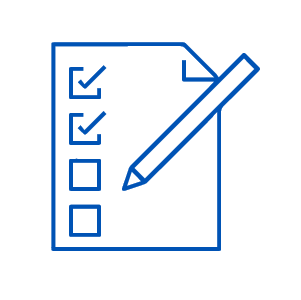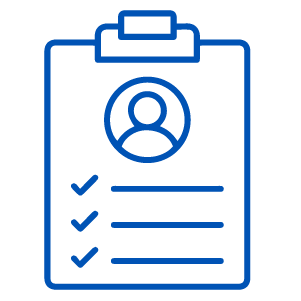


- …


- …

Assess your skills and development areas
Taking the time to understand your current skills and development areas is extremely important when evaluating your job prospects. Knowing what your strengths are, as well as recognising which skills you need to build, can help you secure a promotion, new role and even better, sell yourself during an interview.

How to conduct a skills audit
Conducting a skills audit will help you establish the skills you have and the level of expertise for each skill. It will also highlight gaps, and what you can do about them.

Make a list of your skills
These can include hard skills which you need to perform your job (such as project management, data analysis, presentation skills) and soft skills which describe how you work and interact with others (such as communication, problem solving and critical thinking).

Rate your skills
On a scale of one to ten (one being low, and ten being high), give an honest rating of each skill. Don’t be tempted to put down the level you would like to be at, as this will not help you identify areas for improvement.

Make a list of jobs you’d like
No matter how ambitious these are, they should stay true to your passions and interests. Research job specifications for each job and pull out key skills needed.

Identify your development areas
Compare your list of skills with the skills needed for the jobs you’d like. Highlight which ones you need to develop and which you need to learn.

Establish what training you might need
Once you know what skills you need to learn or build, the next step is to understand practically how you can do so. Training is often the best way to upskill yourself, as well as reading up to date information in your area of expertise. Make a list of training courses and reading material that will help you develop your knowledge and skillset.

Create a development plan
Use your skills audit and training research to create a development plan with specific goals and realistic deadlines. Make sure it’s clear how you’re growing to achieve each goal. If there are paid courses you’d like to complete, it’s always a good idea to speak to your employer first to see if they’re able to support with funding for your professional development.

Useful training resources
Training doesn’t always have to be costly. Depending on what you’d like to achieve, there are a range of free or cost-effective training courses and resources available to support your learning. Below are a list of some useful sources:
- Udemy (A free online learning and teaching marketplace)
- Skills for life (Free training and advice provided by the UK government)
- OpenLearn (Free learning from The Open University)
- FutureLearn (Short online courses)
- LinkedIn learning (A range of training courses and materials)







